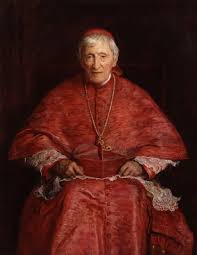Many of us have been subjected to implicit bias trainings that have become part in parcel of the human resources department of corporations and academic institutions throughout the country. While many of the ideas behind these trainings seem absurd, they have inflicted grave harm on society nonetheless. Take for example the idea that institutions must embrace equity in order to “correct” for these biases. Evidence suggests that Asians applying to Harvard needed to score 270 points higher on the SAT than Hispanics, and 450 points higher than African Americans to have the same chance of admission: bitter fruit indeed. It was statistics like this that, in part, led to the 2023 SFFA v Harvard Supreme Court case. Though it would be an interesting article to cover the topic of implicit bias trainings and their connection to diversity, equity, and inclusion (DEI) ideology, that will have to be an article for another day.
What will be dealt with here is the larger issue of bias. Bias is a term frequently thrown around by both sides of a debate, but rarely defined. At one point or another we have all probably received the retort “Well you just think that because…” or “You are just biased”. In many cases this is just a simple ad hominem or genetic fallacy and nothing more. However, there is a particularly pernicious use of this attack that is worth examining in-depth. This is the progressivist accusation that the ideas of the past are no longer valid because they are biased, either by their bigotry, racism, sexism, or whatever other pejorative one can think of. This attack is at best ignorant and at worst hypocritical. Bias, per se, is not a reason to discount any argument or idea. In fact, it is unavoidable.
The Progressive View
Before discussing the absurdity of the progressivist charge of bias, it is necessary to talk about the philosophy behind this attack. When I speak of progressivism I am not merely speaking of a political movement, but of a philosophy. It is a philosophy rooted in the belief in inevitable progress towards a more fair, more just, and more enlightened society. Rarely do the proponents of this philosophy argue explicitly that society is inevitably progressing in a positive direction, rather it is assumed. With each advancement in society, progressivists are usually quick to point out that it is a sign of progress, but what is rarely asked is “Progress towards what?”. If the progress is inevitable then the question would not even be worth asking. In an 1853 sermon called “Of Justice and Conscience” Unitarian minister Theodore Parker said, “Look at the facts of the world. You see a continual and progressive triumph of the right. I do not pretend to understand the moral universe, the arc is a long one, my eye reaches but little ways. I cannot calculate the curve and complete the figure by the experience of sight; I can divine it by conscience. But from what I see I am sure it bends towards justice”. This statement has been famously quoted by Martin Luther King Jr. and Barack Obama. While there is truth in this quote, after all we do and should long for justice: “Blessed are they who hunger and thirst for righteousness, for they shall be satisfied.” (Mt 5:6), it is just too simple. Simple narratives of history should be treated with extreme skepticism. An honest reading of history reveals anything but a simple narrative. History is filled with successes and failures, suffering and triumph, heroes and villains. It is not one long “progressive triumph of the right”, but rather a struggle in which there is both progress and regress.

On a societal level, progressivism leads to the view that tradition is foolish or even a burden as a recent presidential candidate frequently pointed out. On a personal level, this can lead to a deep resentment of one’s ancestors. Progressivism is implicitly opposed to the fourth commandment, “honor and obey your father and mother”. If the progressivist reading of history is correct then what is there to honor in your parents? After all, they are less enlightened than you. Sure, there is a certain degree of gratitude one still owes to their parents for taking care of them and giving them life. But at the end of the day, society has moved on from their honor. What was honorable in their day has been replaced by the “continual and progressive triumph of the right”. There are sobering examples of how resentful progressivism can make people towards their ancestors, including their parents. Take this woman for example. Further, there is research showing that an increasing number of children are cutting their parents off. While there are certainly other factors at play, progressivism has not helped this problem.
I Think Therefore I Am Biased
What the progressivist fails to see is that bias is a necessity. No person can avoid it. Bias is the set of assumptions that we bring with us into the world. It is the narrative by which we see reality. I affirm that each of us should examine this narrative, but I do not advocate for getting rid of it. There is no human being who can rid themselves of all assumptions. As G.K. Chesteron points out in his essay “Philosophy for the Schoolroom” all argumentation, and thus all thought, is built on assumptions and dogmas. No one can be a completely objective observer of the facts of this world. For every person there is a value or set of values by which the facts are interpreted. Therefore, the progressivist is no less biased than anyone else. The concern should not be whether or not a person has bias, but whether that bias disposes a person towards the truth. The goal should not be to rid ourselves of assumptions, but to hold true assumptions. So, yes, we should examine our biases to see if they are in accord with reality and truth. The man who wishes to discard all of his bias must reconstruct his entire system of thought every time he has a new thought, lest he be biased by what he thought before. And even that would not remove all of his bias as Chesterton points out. Ultimately, the great irony for progressivism is that in order for society to progress at all we must be biased towards our ancestors. For it is as Edmund Burke said in “Reflections on the Revolution in France”, “People will not look forward to posterity, who never look backward to their ancestors”.



















